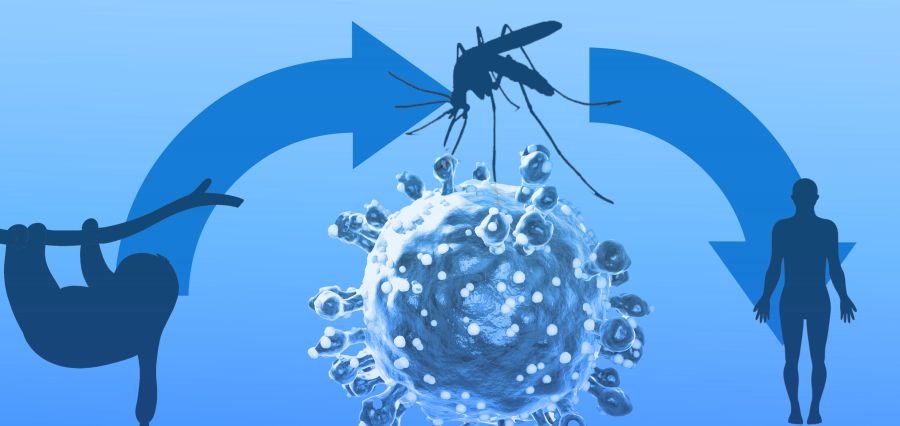Prime Highlights:
- UK reports first three cases of Oropouche virus, also called “sloth virus.”
- Virus causes dengue-like fever and can, in rare cases, lead to meningitis.
- No vaccine or specific treatment exists; prevention relies on avoiding insect bites.
Key Facts
- The virus is transmitted mainly by the Culicoides paraensis biting midge, and occasionally by Culex and Aedes mosquitoes.
- Symptoms include high fever, severe headache, joint and muscle pain, nausea, rash, and dizziness.
Background
The United Kingdom has confirmed its first cases of the Oropouche virus, also known as the “sloth virus,” sparking fresh health concerns. The UK Health Security Agency (UKHSA) said three people tested positive for the tropical disease between January and June after returning from Brazil, where outbreaks are ongoing. The virus is spread through the bite of infected midges and mosquitoes. Most infections produce mild-moderate illness, but in rare instances, the disease causes meningitis, encephalitis, or even death.
UKHSA notes that Oropouche fever has similarities with dengue and other mosquito-borne diseases. The symptoms usually occur four to eight days after infection and include high fever, severe headache, joint and muscle pain, chills, nausea, skin rashes, and dizziness. The disease typically heals within a week, but it may recur.
Health authorities have warned travellers who returned to the region after holidaying in South America to seek immediate healthcare, in case of fever signs or other symptoms. The UKHSA said in its statement that in case an individual falls sick, with signs like high fever, chills, headache, joint pain, muscle aches, they should seek medical help immediately, after travelling in the affected areas.
The virus is maintained in nature among sloths, monkeys, birds, and other wildlife, but humans become infected only through insect bites. The Culicoides paraensis biting midge is the main vector, though Culex and Aedes mosquitoes may also contribute to transmission. UKHSA emphasized that local transmission in the UK is “extremely unlikely” because the carriers of insects have not been established in Europe.
At present, no vaccine or antiviral treatment exists for Oropouche fever; supportive care is recommended, including rest, hydration, and fever relief. Laboratory testing is required for confirmation of the infection since the clinical presentation can be confused with that of dengue, chikungunya, or Zika.
According to public health experts, prevention is important. These steps can be taken before an outbreak by applying insect repellent, clothes long clothes, sleeping in mosquito nets and avoiding the swamps or the forest. Since there is no cure, the authorities caution that it is important to remain alert because international movement increases the chances of importation.










